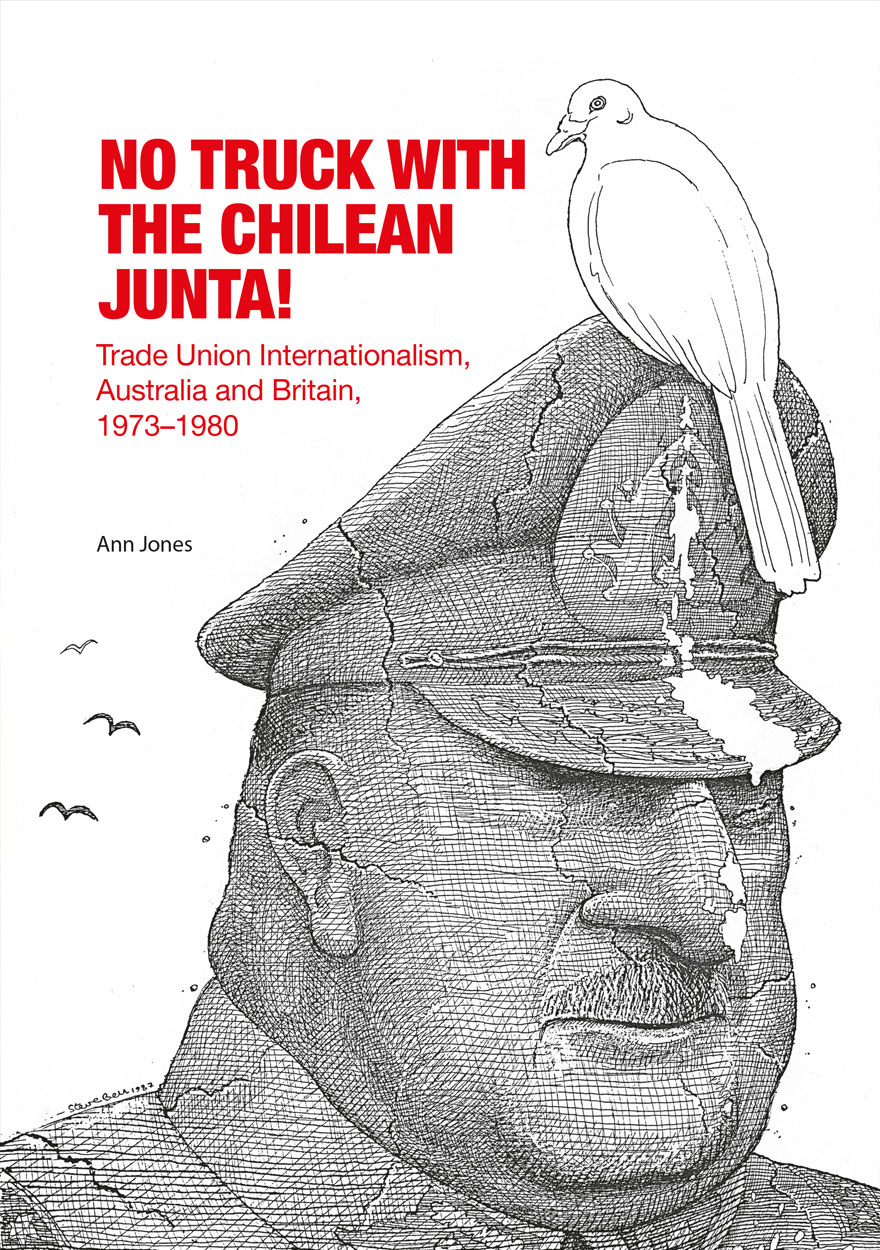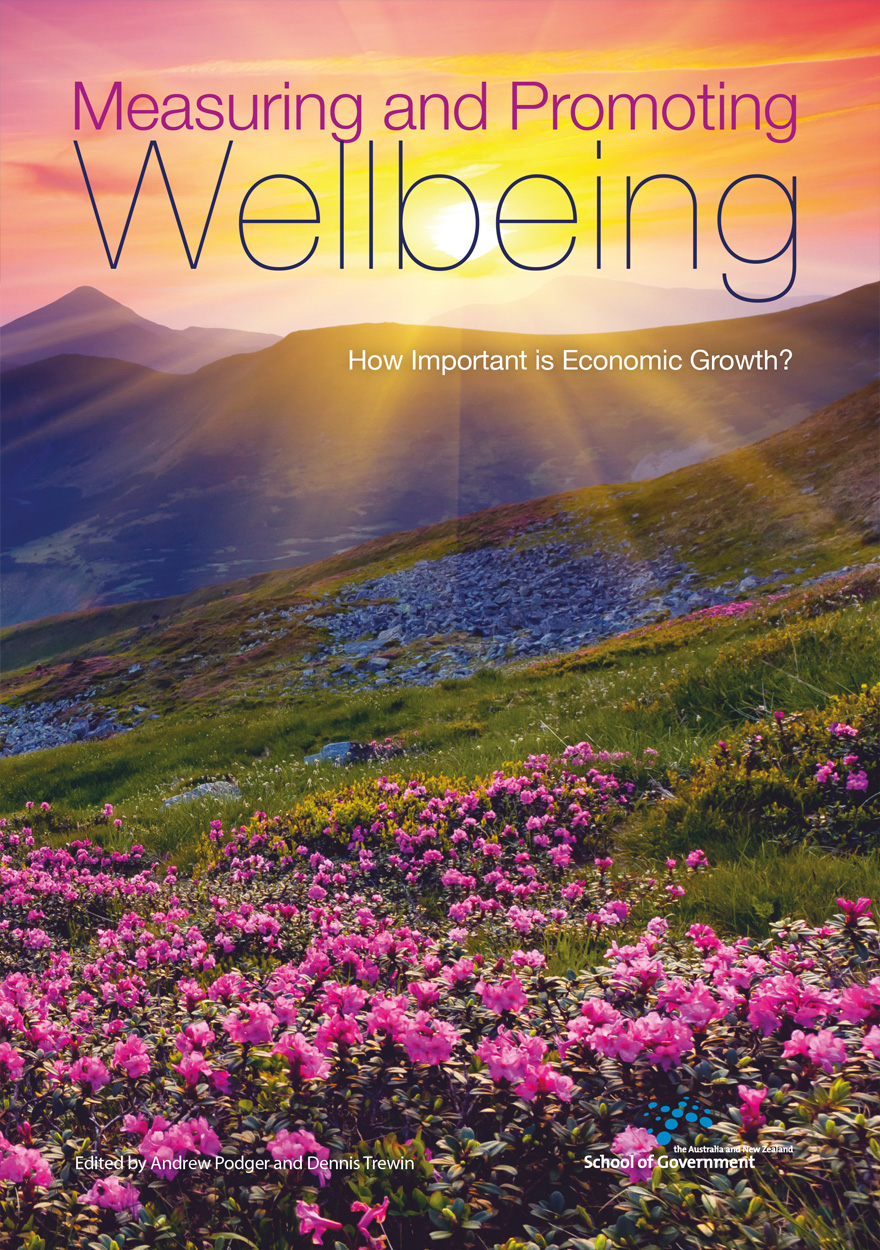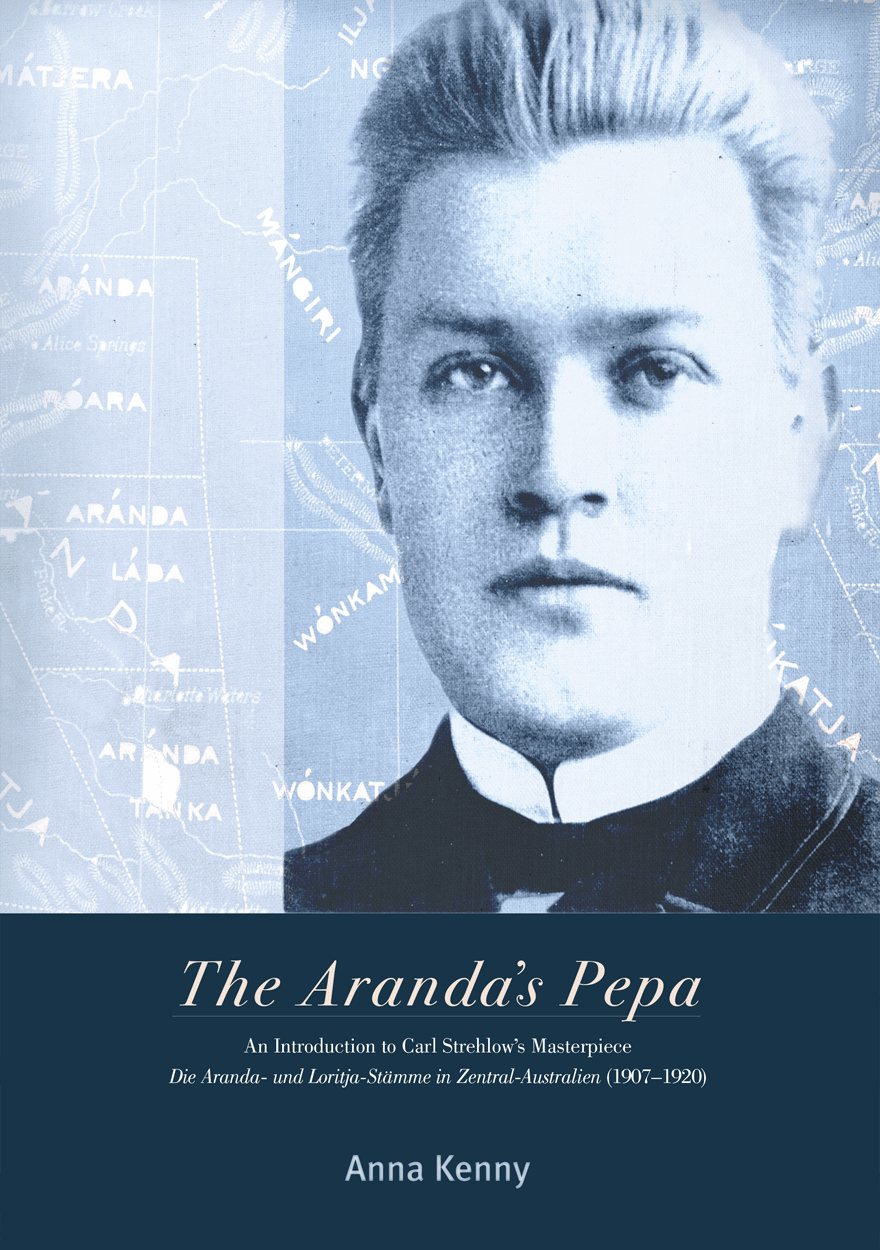Search titles
Displaying results 31 to 40 of 63.

No Truck with the Chilean Junta! »
Trade Union Internationalism, Australia and Britain, 1973–1980
Authored by: Ann Jones
Publication date: August 2014
When lorry drivers in Northampton slapped stickers on their cabs declaring ‘No truck with the Chilean Junta!’ they were doing more than threatening to boycott. They were asserting their own identity as proud unionists and proud internationalists. But what did trade unionists really know of what was happening in Chile? And how could someone else’s oppression become a means to solidify your own identity? The labour movements of Britain and Australia used ‘Chile’ as an impetus for action and to give meaning to their own political expression, though it was not all smooth sailing. Throughout the 1970s, social movements and unions alternately clashed and melded, and those involved with ‘Chile’ were also caught within the unhappy marriage of the cross-cultural left. This book draws together the events and stories of these complex times.

Measuring and Promoting Wellbeing »
How Important is Economic Growth?
Edited by: Andrew Podger, Dennis Trewin
Publication date: April 2014
Australia continues to be at the forefront of international work on measuring and promoting wellbeing, Ian Castles being a significant contributor over the last forty years as an official and academic. This book combines a selection of Castles’ important work with contemporary research from a range of contributors.
The material is in four parts:
1. The role of economics in defining and promoting wellbeing
2. Measuring real income and wellbeing
3. Measuring inequality
4. Climate change and the limits to growth.
The issues canvassed are both long-standing and current. Does economic growth contribute to wellbeing? How different is income to wellbeing? How do we measure societal wellbeing and take its distribution into account? The book will be of value to all those looking to informed debate on global challenges such as reducing poverty, sustaining the environment and advancing the quality of life, including politicians, commentators, officials and academics.

The Aranda's Pepa »
An introduction to Carl Strehlow’s Masterpiece Die Aranda- und Loritja-Stämme in Zentral-Australien (1907-1920)
Authored by: Anna Kenny
Publication date: December 2013
The German missionary Carl Strehlow (1871-1922) had a deep ethnographic interest in Aboriginal Australian cosmology and social life which he documented in his 7 volume work Die Aranda- und Loritja-Stämme in Zentral-Australien that remains unpublished in English. In 1913, Marcel Mauss called his collection of sacred songs and myths, an Australian Rig Veda. This immensely rich corpus, based on a lifetime on the central Australian frontier, is barely known in the English-speaking world and is the last great body of early Australian ethnography that has not yet been built into the world of Australian anthropology and its intellectual history.
The German psychological and hermeneutic traditions of anthropology that developed outside of a British-Australian intellectual world were alternatives to 19th century British scientism. The intellectual roots of early German anthropology reached back to Johann Gottfried Herder (1744-1803), the founder of German historical particularism, who rejected the concept of race as well as the French dogma of the uniform development of civilisation. Instead he recognised unique sets of values transmitted through history and maintained that cultures had to be viewed in terms of their own development and purpose. Thus, humanity was made up of a great diversity of ways of life, language being one of its main manifestations. It is this tradition that led to a concept of cultures in the plural.

Watriama and Co »
Further Pacific Islands Portraits
Authored by: Hugh Laracy
Publication date: October 2013
Watriama and Co (the title echoes Kipling’s Stalky and Co!) is a collection of biographical essays about people associated with the Pacific Islands. It covers a period of almost a century and a half. However, the individual stories of first-hand experience converge to some extent in various ways so as to present a broadly coherent picture of ‘Pacific History’. In this, politics, economics and religion overlap. So, too, do indigenous cultures and concerns; together with the activities and interests of the Europeans who ventured into the Pacific and who had a profound, widespread and enduring impact there from the nineteenth century, and who also prompted reactions from the Island peoples. Not least significant in this process is the fact that the Europeans generated a ‘paper trail’ through which their stories and those of the Islanders (who also contributed to their written record) can be known. Thus, not only are the subjects of the essays to be encountered personally, and within a contextual kinship, but the way in which the past has shaped the future is clearly discernible. Watriama himself features in various historical narratives. So, too, certain of his confrères in this collection, which is the product of several decades of exploring the Pacific past in archives, by sea, and on foot through most of Oceania.

France in the South Pacific »
Power and Politics
Authored by: Denise Fisher
Publication date: May 2013
France is a Pacific power, with three territories, a military presence, and extensive investments. Once seen by many as a colonial interloper in the South Pacific, by the early 2000s, after it ended nuclear testing in French Polynesia and negotiated transitional Accords responding to independence demands in New Caledonia, France seems to have become generally accepted as a regional partner, even if its efforts concentrate on its own territories rather than the independent island states.
But France’s future in the region has yet to be secured. By 2014 it is to have handed over a set of agreed autonomies to the New Caledonian government, before an independence referendum process begins. Past experience suggests that a final resolution of the status of New Caledonia will be divisive and could lead once again to violent confrontations. In French Polynesia, calls continue for independence and for treatment under UN decolonisation procedures, which France opposes. Other island leaders are watching, so far putting faith in the Noumea Accord, but wary of the final stages. The issues and possible solutions are more complex than the French Pacific island population of 515,000 would suggest.
Combining historical background with political and economic analysis, this comprehensive study offers vital insight into the intricate history – and problematic future – of several of Australia’s key neighbours in the Pacific and to the priorities and options of the European country that still rules them. It is aimed at policy-makers, scholars, journalists, businesspeople, and others who want to familiarise themselves with the issues as France’s role in the region is redefined in the years to come.

A Good Life »
Human rights and encounters with modernity
Authored by: Mary Edmunds
Publication date: May 2013
This book is a story. It’s a story about ordinary people in very different parts of the world dealing with rapid change in the late twentieth and early twenty-first centuries. It’s about times of turbulent and violent social upheaval and rupture with the past. It’s about modern times. It’s also about being human; what it is to be human in a modernising and globalising world; how, in responding to the circumstances of their times, different groups define, redefine, and attempt to put into practice their understandings of the good and of what constitutes a good life. And it’s about how human rights have come to be not abstract universal principles but a practical source of consciousness and practice for real people.
Drawing on the author’s experience as an anthropologist, the book examines different groups over the last three decades of the twentieth century and the first years of the twenty-first: Thai factory workers over a period of two coups in the 1970s; Spanish nuns in the 1980s, in the aftermath of the Second Vatican Council and the end of the Franco dictatorship; Aboriginal people in the remote Pilbara region of Western Australia dealing with the impact of late colonialism and moves towards self-determination, from the 1980s to the present. Each of these groups has its own stories, illuminating ways in which, despite the assault of modernisation on deeply held traditional beliefs and practices, particular cultural understandings and practices continue to shape people’s responses to their novel circumstances. The very diversity of the studies presented in the book raises some of the most compelling moral and social questions of our time and invites the reader, both academic and lay, to focus on what it is that makes us human; whether there are human universals as well as cultural particularities; whether human rights provide universal norms and practices; what unites as well as divides us; and where morality, and understandings of a good life, can be sourced in a secular modern world.
“This is a book about hope, the hope that we have ways to live together in a rapidly changing world which will enable us to ‘live a good life in the modern world.’”
Hon. Fred Chaney AO.

Conquering the Highlands »
A history of the afforestation of the Scottish uplands
Authored by: Jan Oosthoek
Publication date: February 2013
Deforestation of Scotland began millennia ago and by the early 20th century woodland cover was down to about 6 per cent of the total land area. A century later woodland cover had tripled. Most of the newly established forestry plantations were created on elevated land with wet peaty soils and high wind exposure, not exactly the condition in which forests naturally thrive. Jan Oosthoek tells in this book the story of how 20th century foresters devised ways to successfully reforest the poor Scottish uplands, land that was regarded as unplantable, to fulfil the mandate they had received from the Government and wider society to create a timber reserve. He raises the question whether the adopted forestry practice was the only viable means to create forests in the Scottish Highlands by examining debates within the forestry community about the appearance of the forests and their longterm ecological prospects. Finally, the book argues that the long held ecological convictions among foresters and pressure from environmentalists came together in the late 20th century to create more environmentally sensitive forestry.

Humanities Research: Volume XIX No. 1. 2013 »
Nationalism and Biography: European Perspectives
Edited by: Jonathan Hearn, Christian Wicke
Publication date: January 2013
Humanities Research is an internationally peer-reviewed journal published by the Research School of Humanities at The Australian National University. The Research School of Humanities came into existence in January 2007 and consists of the Humanities Research Centre, Centre for Cross-Cultural Research, National Europe Centre and Australian National Dictionary Centre. Launched in 1997, issues are thematic with guest editors and address important and timely topics across all branches of the humanities.
Download for free
Not available for purchase

Past Law, Present Histories »
Edited by: Diane Kirkby
Publication date: September 2012
This collection brings methods and questions from humanities, law and social sciences disciplines to examine different instances of lawmaking. Contributors explore the problematic of past law in present historical analysis across indigenous Australia and New Zealand, from post-Franco Spain to current international law and maritime regulation, from settler colonial humanitarian debates to efforts to end cruelty to children and animals. They highlight problems both national and international in their implication. From different disciplines and theoretical positions, they illustrate the diverse and complex study of law’s history.

Security and Privacy »
Global Standards for Ethical Identity Management in Contemporary Liberal Democratic States
Authored by: John Kleinig, Peter Mameli, Seumas Miller, Douglas Salane, Adina Schwartz
Publication date: December 2011
This study is principally concerned with the ethical dimensions of identity management technology – electronic surveillance, the mining of personal data, and profiling – in the context of transnational crime and global terrorism. The ethical challenge at the heart of this study is to establish an acceptable and sustainable equilibrium between two central moral values in contemporary liberal democracies, namely, security and privacy. Both values are essential to individual liberty, but they come into conflict in times when civil order is threatened, as has been the case from late in the twentieth century, with the advent of global terrorism and trans-national crime.
We seek to articulate legally sustainable, politically possible, and technologically feasible, global ethical standards for identity management technology and policies in liberal democracies in the contemporary global security context. Although the standards in question are to be understood as global ethical standards potentially to be adopted not only by the United States, but also by the European Union, India, Australasia, and other contemporary liberal democratic states, we take as our primary focus the tensions that have arisen between the United States and the European Union.



